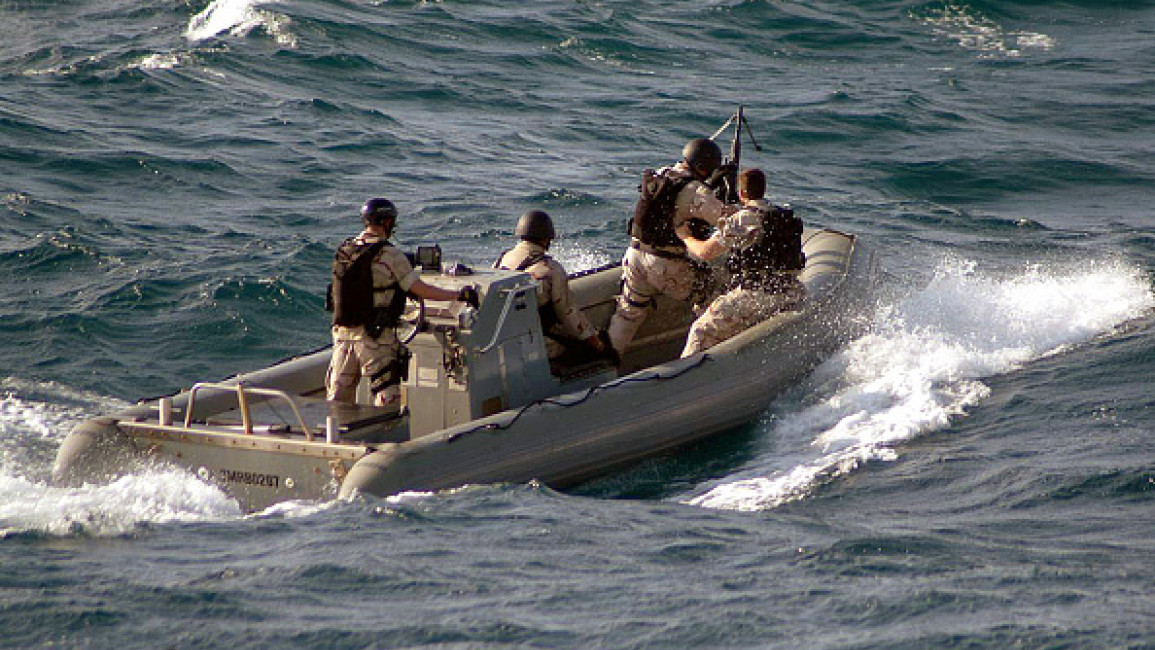After Gaza war, are Somali pirates back in Gulf of Aden, Red Sea?
The attempted hijacking of a commercial vessel in the Gulf of Aden close to the Strait of Bab al-Mandib leading to the Read Sea has highlighted the threat of piracy in the volatile region's waterways.
After initially believing it to be carried out by Yemen’s Houthi group, the US military on Monday said it appears to have been carried out by Somali pirates, after detaining the attackers.
While there has been no confirmation, Pentagon spokesperson Brigadier General Patrick Ryder indicated that the five attackers captured by the US Navy were Somali.
Ryder said it was "clearly a piracy-related incident".
Are Somali pirates still present?
Attacks carried out by Somali pirates, who have long sailed the Somali basin, have significantly reduced in recent years.
Piracy flourished in the waters surrounding the Horn of Africa – a troubled region torn apart by decades of instability – at the onset of the 21st century.
It rapidly began to escalate after Ethiopia’s military intervention in Somalia’s civil war between 2006 and 2009.
The last successful attack was reported in August 2020 - the first successful hijacking since the spring of 2017.
Wasting away: Somalia's ecosystem in the dumps as toxic waste poisons life 👇
— The New Arab (@The_NewArab) April 19, 2023
✍ Austin Bodetti https://t.co/zgRwZrFKJ6
But at the start of this year, the International Maritime Bureau (IMB) lifted its "High-Risk Area" designation for the western Indian Ocean due to a significant absence of Somali pirate attacks.
This was mainly due to the presence of a large multi-national naval task force – including the Indian and Chinese navies - responsible for combatting piracy.
Upon lifting its designation in January, the IMB did note however that these pirates still reportedly have the ability and resources to conduct attacks in the Gulf of Aden region.
Why now?
The possible attack on the chemical tanker Central Park by Somali pirates would mark a significant and dangerous development in Middle East waters.
Central Park is a Liberian-flagged tanker and owned by Israeli business magnate Eyal Ofer’s Zodiac Maritime, according to Reuters.
Commercial and military ships are already cautious travelling through water ways such as Bab al-Mandeb, linking the Red Sea to the Gulf of Aden, and the Strait of Hormuz, linking the Gulf to the Gulf of Oman, with a history of pirate hijackings or tit-for-tat attacks between rival powers.
The shipping industry is on high alert even more so now since the start of the Gaza war in October, and its potential spillover in the region.
Houthi targeting of Israel-linked ships in the Red Sea in retaliation for the Israeli war on Gaza is intensifying, disrupting Israel's shipping industryhttps://t.co/Da9OAK1BMc
— The New Arab (@The_NewArab) November 29, 2023
While the US Department of Defense is yet to release any confirmation of the attackers’ identity or their motive, it raises questions as to why, and after many years, alleged Somali pirates decided to strike now.
A wave of attacks by Yemen’s Houthi militants on Israel in recent weeks may have emboldened these pirates to take advantage of the instability, especially following the seizure of an Israeli-linked cargo ship by Iran-backed Houthis in the southern Red Sea last week.
The Houthis had announced that they are supporting the Palestinian group Hamas in its war with Israel, which erupted on October 7 after Hamas' unprecedented attack in southern Israel.
What next?
Since Israel declared war on Gaza, and amid worries of an expanded conflict involving Iranian-backed militias and proxies, the US had announced it was deploying warships and thousands of troops to the eastern Mediterranean.
The US Navy already intercepted multiple attacks by the Houthis, the latest being late on Wednesday when the Yemeni rebels fired a drone supposedly heading toward the USS Carney.
Will Houthi-Israel tensions threaten security in Yemen and the Red Sea? https://t.co/juDiIiVdiZ
— The New Arab (@The_NewArab) November 26, 2023
But it may be too soon to say whether the attempted Sunday hijacking of Central Park was an isolated incident or the first in a string of pirate attacks, and if so, how Washington plans on dealing with the phenomenon.
With an already significant presence in the seas surrounding the Arabian Peninsula, and the Middle East’s Mediterranean shores, coming days and weeks will make clear if pirates pose an additional threat to shipping activity.

![Trump's warm greeting to Netanyahu contrasted with Kamala Harris's critical reception [Getty]](/sites/default/files/styles/image_330x185/public/2024-07/GettyImages-2162908988.jpg?h=69f2b9d0&itok=OLc5dL88)
![The brutal assault on Khan Younis has killed dozens and displaced thousands more [Getty]](/sites/default/files/styles/image_330x185/public/2024-07/GettyImages-2162526709.jpg?h=d3eda8cf&itok=n5N-o8p5)
![Members of the Algerian delegation threw roses into the Seine [Getty]](/sites/default/files/styles/image_330x185/public/2024-07/GettyImages-2162980872.jpg?h=199d8c1f&itok=h_3o_TOL)